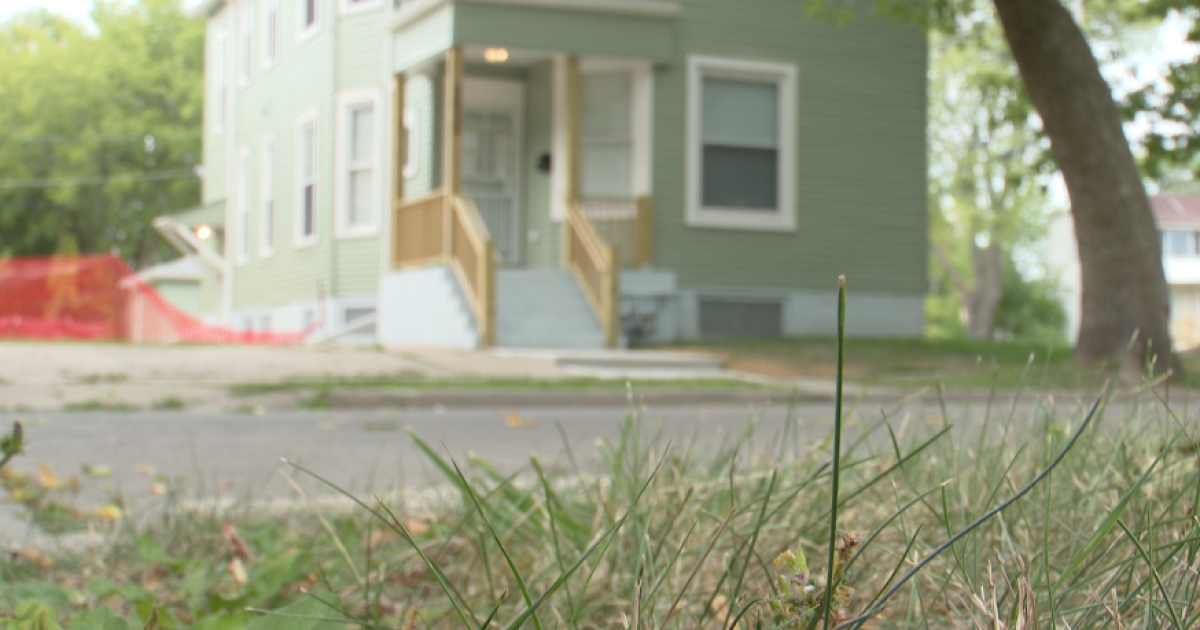There are small single family houses for sale in Milwaukee under $100,000. I’ve brought this up on the Milwaukee Reddit and the people on there seem to believe the only worthwhile places to live are in Wauwatosa, Bay View, Shorewood, etc. But not in Milwaukee.
How do they keep the price low forever? Does the person who buys the house not really own it?
The land trust means that the homeowners only own the house but not the land.
The average size of houses in the United States has increased from 831 square feet in 1790, to 945 square feet in 1910, to 2,496 square feet in 2019.
Over the same time range, the number of people living within each house as decreased. The average number of people per house in 1790 was nearly six, but by 2019 the average number of people per house had dropped to less than 2.5.
Additionally, newer houses have to be built to more strict code requirements and include newer technologies. These are some of the reasons why houses cost more now than in the 1950s.
To expand on the mechanics a bit: The land is rented to the homeowner for the duration at like $5 a month, and upon sale (at a fixed price) the equity is split equally with the trust.
The key is, the houses are in an area no one has ever, or will ever want to live.
That’s the exact negative attitude I was describing above.
It’s not that negative - unfortunately, there are neighborhoods where people don’t want to live in because of crime, gangs, homelessness, etc. Housing there is cheaper because the homes are not well maintained. Put up a new house and neighbors will not like it because if the property values go up then their property taxes go up - many are on a fixed income and can’t afford it.
It also means they can’t really fight the nearby gang activity because they have no other place to go.
Not saying you are wrong, but there is a lot more to it. That being said, there are options, and hopefully it leads to positive solutions for everyone.
If more good people move into a neighborhood and are vigilant, the gangs won’t want to stay. If the houses are run down, they can get fixed up. Neighborhoods can turn around.
There’s a pervasive view by people on Reddit (and I’m guessing Lemmy now too), that if the neighborhood contains mostly black people, it’s somehow bad.
I’ve lived on the Northwest side of Milwaukee for over a decade. Some people hear “North side” and they immediately think it’s a crime ridden place. My neighbors are a mixture of black, white, Asian, and Hispanic individuals. I think some people need to let go of their misguided perceptions and give different areas of Milwaukee a chance.
There’s a pervasive view by people on Reddit (and I’m guessing Lemmy now too), that if the neighborhood contains mostly black people, it’s somehow bad.
There are some really bad black neighborhoods. They are portrayed that way on TV and movies, even glorified in many respects due to music, and therefore the perception is that black neighborhoods are bad.
However, there are bad neighborhoods from every ethnicity - depends on the city. If you look at Tulsa/Oklahoma City, Tucson/Phoenix, Miami, even LA’s latino suburbs, the same can apply.
Cheap housing is not the primary focus for “good” people to move into a neighborhood. Gangs aren’t necessary going to leave just because a nice, white family moved in next door. In fact, the gang is more likely to taunt them into either fearing them into staying in their house or getting them to leave. Gangs make money from fear and hate. They will hurt, even kill, to maintain their territory and reputation.
“It takes a village” is a cliche, but it works. Your multi-ethnic neighborhood worked because together they allowed the group as a whole to be positive. These neighborhoods are going to have to do the same, collectively. The local government can help, along with dedicated organizations like the CDA, to work with those neighborhoods to do that. But in the end, it’s up to the neighborhoods. If they don’t want to, not much is really going to change.
The alternative is a developer swooping in, strip all the properties outright, and just putting in what he wants with bribes to the city under the guise of “fixing the blight”. It will no longer be a “neighborhood”; just a condo or apartment building, with tenants instead of owners.
Gangs aren’t necessary going to leave just because a nice, white family moved in next door.
A “nice family” doesn’t have to be white. A nice family can be of any race or color.
The alternative is a developer swooping in, strip all the properties outright, and just putting in what he wants with bribes to the city under the guise of “fixing the blight”.
There’s no “bribes to the city”. The city already offers developers the ability to buy blighted properties for $5,000 each. There’s deed restrictions for selling it and development restrictions on needing to get work done in a certain timeframe.
Homeowners probably won’t be able to do this alone. It would take a combination of the city to provide the properties and subsidies for renovation, developers to renovate them, and homeowners to purchases in that area.




